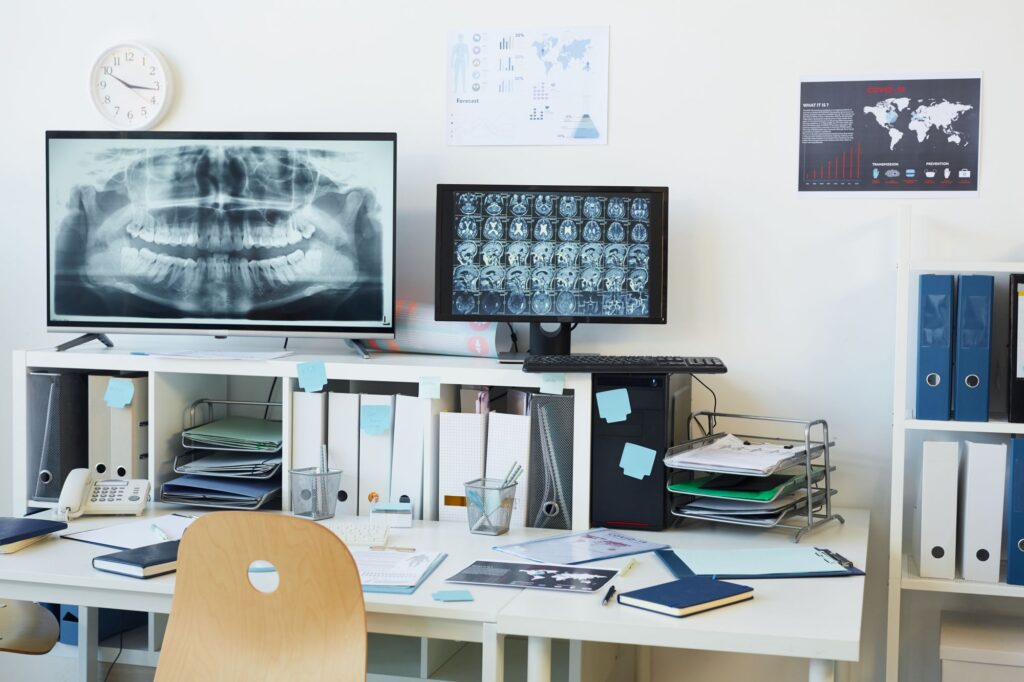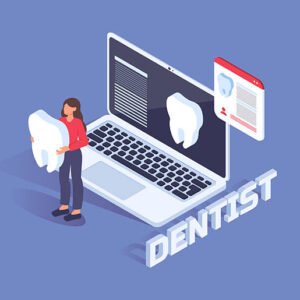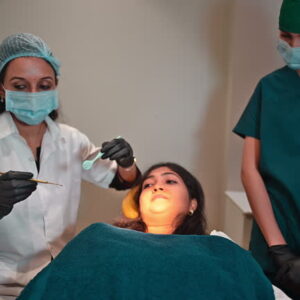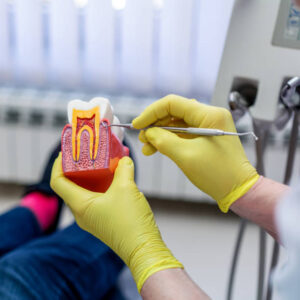Technology in dentistry has made the patient’s dental visit more comfortable and efficient. New dental technology seems to come out each year to give the dentist a way to better and more accurately diagnose dental issues and provide the patient with a better dental experience.
If you’re wondering what kind of new dental technology is about to roll out or which has already been adopted, you’re in luck. Here is a small list of the latest dental technology:

Digital Dentistry and 3D Printing
With 3D printers becoming smaller and more sophisticated, they increasingly become part of every dental office. Current 3D printers can produce custom, same-day crowns, and implant abutments. New 3D printers will be capable of yielding nightguards, bridge models, surgical guides, and stone models.
Enhanced Visualization Tools
Issues of the mouth are often hard to see, even by a dentist. Magnification tools are essential to any dentist. However, there isn’t a single tool that features multiple magnifications until now. There is now a visualization tool called OmniOptic by Orascoptic, which gives dentists the ability to change between 2.5 and 5.5 times magnification.
The same company has also come out with Spark, a cordless headlight that can be worn with eyewear or loupes.
Failed Implant and Prosthesis Repair
Dental implants, crowns, and dentures can break and fail over time. Usually, these require that the appliance be replaced. The Locator F-Tx Fixed Attachment System by Zest Dental Solutions can fix failing dental prostheses saving the patient money and time.
Improved Digital Impressions
Good impressions come from good models and scans which come from high, accurate scans. With the RIO 3 intraoral scanner, dentists can get the color or black and white images all with being wireless and cart of pod set up. This scanner not only provides detailed photos with precise coloring and shade measurements but is also enhances the patients’ dental office experience.
Digital cameras also have undergone improvements and now feature preset modes, take vibrant, bright, detailed photos, are user-friendly, and are resistant to water and chemicals.
Advanced Lasers
Lasers have become an accurate and safe way to conduct tight dental procedures in the mouth. Lasers have been used to eliminate oral cancer cells in performing precise incisions.
With the first dual-wavelength soft tissue diode laser in production, it will be a matter of time before lasers will perform more dental procedures, including crown lengthening, exposing unerupted teeth, and recovering implants and cut out and drain teeth abscesses.
Bluetooth Toothbrushes
As if electronic toothbrushes weren’t enough, “smart” electric toothbrushes that run on Bluetooth. These toothbrushes include a location sensor, scrubbing sensor, pressure sensor, a mouth map, and customized coaching for better dental health care.
Mobile Dental Photography
Everyone knows that Smartphones are more than a phone. The advancements of Smartphones have yielded phones with high-quality cameras. Dentists can use their Smartphones to take photos and upload the images to a computer or even look at and analyze the image while away from the office.
Improved Cavity Detection
Dental x-rays are a common way to catch cavities early. Some patients don’t like x-ray because of the possible radiation. New cavity detection technology bypasses the radiation of x-ray while providing the same quality and accurate diagnosis.
Portable equipment and cameras that utilize infrared light help dentists more easily observe and diagnose dental issues.
Increased Use of Cloud-based Software
Saving essential files and valuable, confidential patient information on a computer hard drive is outdated and less secure. Should something happen to those back-ups, the data is lost forever.
Saving this type of information to the cloud grants the dentist easy access to records and files anywhere and anytime. Collecting information over the Internet spares the dentist’s frustration and time looking for information.
Machine Learning Automated Software
Dental software is the backbone of any dental office. It manages all of the crucial data that will help in maintaining a patient’s dental health.
It used to be a balancing act in trying to book enough appointments in a day while not getting yourself double-booked. When a patient canceled, you have to inform another patient about the slot availability quickly.
This can be stressful, and it can keep you from doing your job. New machine learning, however, can now schedule appointments, detect and quickly fill cancellations, in addition, to keep schedules full by monitoring the available chair time and scheduling pre-selected patients.
Great Aligner Selection
Who needs metal braces when clear, plastic clear aligners can do the same thing without the embarrassing look or scratched-up mouth? More competition in the aligner market will only lead to lower-cost and more effective invisible aligners.
Sleep Issue Diagnoses
With more Americans experiencing sleep disorders such as sleep apnea and Bruxism, it will be more common for dentists to provide sleep issue treatment in their offices.
Better Quality Materials for Restorations
The future of restoration materials will likely include some bioactive materials. Right now, some possible future restoration materials have been found to convert into a chemical called hydroxyapatite, which not only binds to the tooth, but it also strengthens the too.
Digital Scanning Devices
A few years ago, the CEREC and E4D digital scanners were all the rage. With digital scanners’ success, more companies are getting into the dental scanning game, including many from Europe. The competition will get fiercer, so expect to see digital scanners with more capabilities coming out soon.
Increased IT Security
With the increased incidents of significant data breaches in the last few years, it makes sense that more and more dentists will invest in more sophisticated and resistant hackers to protect their patients’ confidential medical history records.
Patients may not enjoy going to the dentist, but if there is something wrong in their mouths and their mouth hurts, they will visit the dentist. Advancements in dental technologies aim to help dentists better diagnose and treat dental conditions and give dental patients a more pleasant experience.





